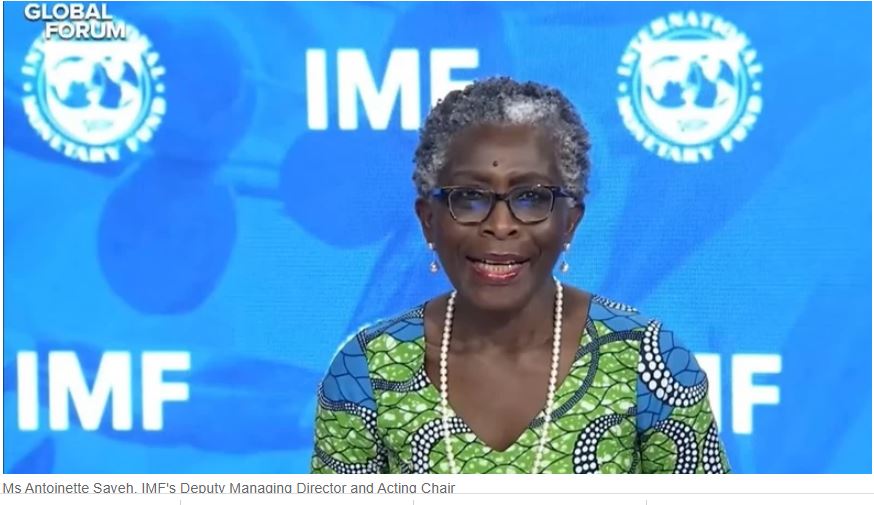The Executive Board of the International Monetary Fund (IMF) has approved a $235.6 million loan disbursement to Kenya.
Join our WhatsApp ChannelIt is understood that the loan is the third installment for Kenya under the IMF’s Extended Credit Facility and Extended Fund Facility arrangements for the East African country. Of the $2.34 billion that is expected to be disbursed under this 38-month arrangement, Kenya has so far received $1.208 billion.
The newly approved loan disbursement would help finance Kenya’s 2022/2023 fiscal budget, the IMF said.
A statement by the IMF went further to commend the Kenyan Government for the progress made so far in managing the country’s economy.
According to the statement which was made available on the IMF’s website, Kenya’s economy has made significant progress despite macroeconomic headwinds. And despite the uncertainties that exist, the country’s medium-term growth outlook looks favourable.
The IMF also commended Kenya’s strong tax performance during the 2021/2022 fiscal year, noting that said performance has helped the country immensely to cushion the impact of rising fuel costs.
Meanwhile, Kenya’s approved 2022/2023 fiscal budget has also created enough room to broaden tax collection whilst maintaining careful expenditure controls.
“Strong fiscal performance is providing a welcome resilience. Although the authorities are adjusting domestic fuel prices to international levels more gradually, program targets are still being met thanks to strong tax revenues. Nevertheless, more targeted programs to support vulnerable households should accompany the ongoing review of the fuel pricing mechanism and plans for reforms to ensure that pricing actions are always aligned to the approved budget. Looking ahead, the authorities should sustain their fiscal consolidation efforts to reduce debt vulnerabilities, while securing space for needed social and development spending. This requires further improving spending efficiency and undertaking additional tax policy and revenue administration measures drawing from the forthcoming Medium-Term Revenue Strategy,” IMF’s Deputy Managing Director and Acting Chair, Ms. Antoinette Sayeh, was quoted to have said at the conclusion of the Board’s discussions.
She added that despite the progress recorded so far, that the Kenyan programme remains subject to downside risks; including risks caused by the war in Ukraine, global market conditions and food insecurity.
In order to avert these risks, the IMF recommended steadfast commitment to prudent policies as well as continued advancement of structural reforms that are essential to maintaining macroeconomic stability.

















Follow Us